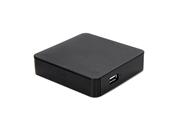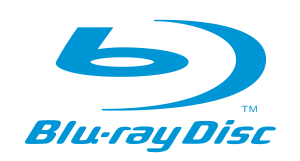Recently, for a limited time, Newegg offered the Western Digital TV Mini Media Player for $40 including shipping. It is currently listed for $59.99.
The Mini is the little brother of the WD TV and the WD TV Live. The basic differences between the three is that the Mini is SD, and the WD TV Live includes networking capability.
The device has its pros and cons. It is very small, and can playback media from any USB drive formatted to FAT, FAT32, NTFS, or HFS. This makes it useful as a portable device, although the slightly larger WD TV and TV Live have much more functionality. The maximum resolution is 720 x 480 for most files. It doesn’t support MKV or H264 either. But it does support XviD, OGG, etc and a variety of other common formats.
It can playback not only video, but music and pictures.
This weekend, we field-tested it. It was able to playback everything within its defined parameters that we threw at it, including two movies, several Revision3 shows, and some audio podcasts.
Ultimately, this device is not something we’d have in our house. Quite franky we don’t need it. But it is a great device, for the price we paid, to stick in a bag and use to playback your digital media at whatever place you happen to be with a minimum of fuss. Reading reviews, two popular uses are to playback ripped movies and to hook into a car entertainment system.
We hope, however, that firmware updates bring additional features to this device in the future. Although we are not holding our breath.
Related articles by Zemanta
- Western Digital Unveils Two New Media Options (gadgetwisdom.com)
- New Western Digital WD TV Live media player hits Best Buy (engadget.com)





